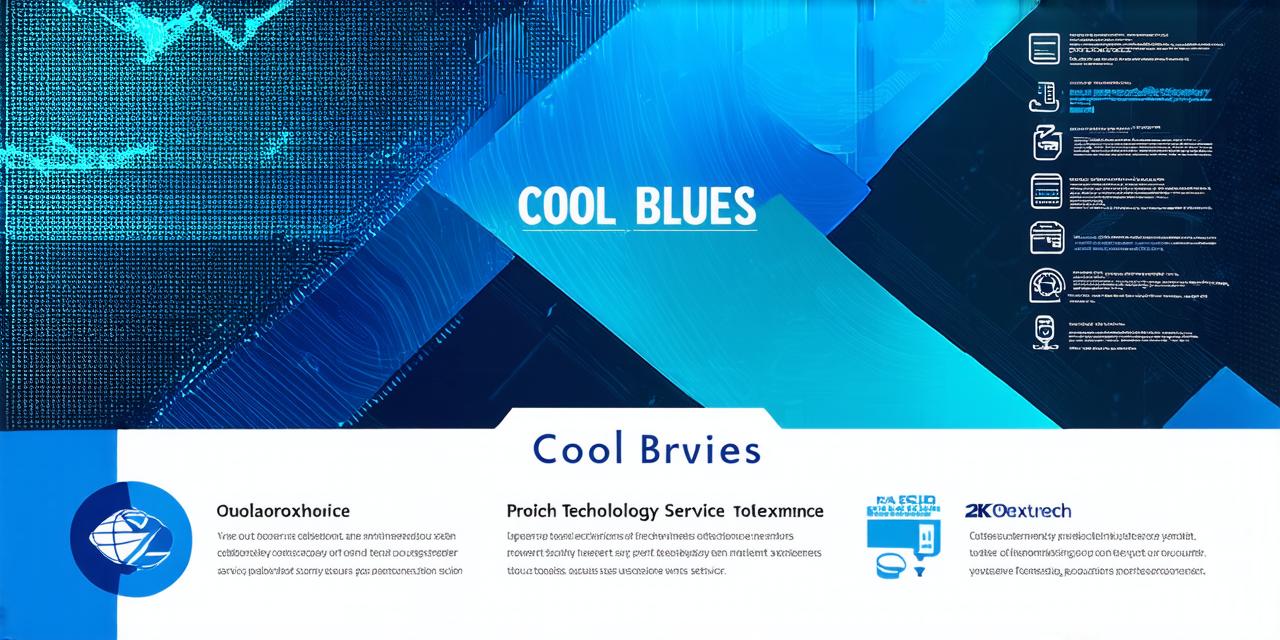In today’s fast-paced business environment, companies are constantly seeking ways to improve efficiency, reduce costs, and increase productivity. One effective solution that many businesses turn to is IT outsourcing. By outsourcing IT services to a specialized provider, companies can free up valuable resources to focus on their core competencies, while still benefiting from access to skilled professionals and cutting-edge technology.
1. Application Development and Maintenance
Application development and maintenance is one of the most common IT outsourcing services. This involves building custom software applications or maintaining existing ones, including fixing bugs, improving performance, and adding new features.
By outsourcing application development and maintenance to a specialized provider, businesses can benefit from access to experienced developers who are skilled in a variety of programming languages and technologies. This can help companies stay ahead of the curve by quickly developing and launching innovative products and services.
For example, a company that operates in the e-commerce industry may choose to outsource application development and maintenance to a provider that specializes in building secure and scalable online stores. By working with an experienced provider, the company can ensure that its website is always available, fast, and user-friendly, which can help boost sales and customer satisfaction.
2. Network Infrastructure Management
Network infrastructure management involves managing and maintaining a company’s computer networks, including hardware, software, and connectivity. This includes tasks such as monitoring network performance, troubleshooting issues, and implementing security measures to protect against cyber threats.
By outsourcing network infrastructure management to a specialized provider, businesses can benefit from access to experts who are skilled in managing complex IT systems. This can help companies reduce downtime, improve productivity, and ensure that their data is secure from cyber threats.
For example, a healthcare organization may choose to outsource network infrastructure management to a provider that specializes in securing sensitive patient data. By working with an experienced provider, the healthcare organization can ensure that its systems are compliant with regulatory requirements and protected against cyber attacks that could compromise patient privacy.
3. Cloud Services
Cloud services involve providing IT resources over the internet, including storage, processing power, and software applications. This allows businesses to access these resources on-demand, without having to invest in expensive hardware or maintain their own data centers.
By outsourcing cloud services to a specialized provider, businesses can benefit from access to scalable and cost-effective IT solutions that can grow and adapt to changing business needs. This can help companies reduce costs, improve efficiency, and increase agility in response to market changes.
For example, a small business may choose to outsource cloud services to a provider that specializes in hosting websites and applications on the cloud. By working with an experienced provider, the small business can ensure that its website is always available, fast, and secure, without having to invest in expensive hardware or maintain its own data center.
4. Data Analytics and Business Intelligence
Data analytics and business intelligence involve using data analysis techniques to gain insights into business operations and make informed decisions. This includes tasks such as collecting, processing, and analyzing large datasets to identify trends, patterns, and areas for improvement.
By outsourcing data analytics and business intelligence to a specialized provider, businesses can benefit from access to experts who are skilled in managing complex data sets and interpreting results. This can help companies make better-informed decisions and drive innovation by identifying new opportunities and areas for growth.
For example, a retail company may choose to outsource data analytics and business intelligence to a provider that specializes in analyzing customer behavior and preferences. By working with an experienced provider, the retail company can gain insights into customer preferences and behaviors, which can help it optimize its marketing campaigns and improve the shopping experience for customers.

Choosing an Outsourcing Partner:
When choosing an outsourcing partner, there are several factors to consider, including the provider’s expertise, experience, reputation, and pricing model. It’s important to carefully evaluate each potential partner and choose one that aligns with your business goals and objectives.
1. Expertise and Experience:
When selecting an outsourcing partner, it’s important to choose a provider that has the necessary expertise and experience to meet your specific needs. Look for providers that specialize in the services you require and have a track record of delivering successful projects and solutions.
2. Reputation:
A good reputation is an important indicator of a provider’s quality of service and ability to deliver results. Look for providers that have positive reviews from previous clients and have been recognized for their industry achievements and awards.
3. Pricing Model:
The pricing model used by the provider can have a significant impact on your bottom line. Look for providers that offer competitive pricing and transparent billing practices, without sacrificing quality or service.
4. Communication and Collaboration:
Effective communication and collaboration are key to a successful outsourcing relationship. Look for providers that prioritize open communication and provide regular updates on project progress and deliverables.
5. Security and Compliance:
For businesses that handle sensitive data, it’s important to choose an outsourcing partner that is committed to maintaining high levels of security and compliance. Look for providers that have implemented robust security measures and are familiar with relevant industry regulations and standards.
Summary:
IT outsourcing services can provide a range of benefits for businesses, including cost savings, increased efficiency, and access to specialized skills and technology. By choosing the right partner and carefully evaluating each service, businesses can optimize their IT operations, reduce costs, and drive innovation in today’s fast-paced business environment.
